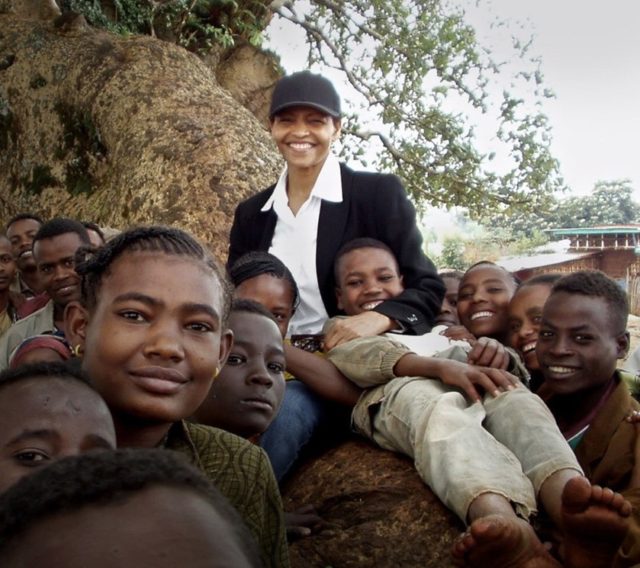LATIMES || It was Bogaletch Gebre’s calming, reassuring aura coupled with her relentless energy and determination that helped her galvanize thousands of people in Ethiopia and the United States to champion women’s rights and fight against the practice of female genital mutilation in her homeland.
Once crowned as “the woman who began the rebellion of Ethiopian women” by the British press, Gebre was born in 1953 in the remote Zata village of Ethiopia’s Kembatta district, about 255 miles southwest of the country’s capital, Addis Ababa, said her brother, Gebre Abera.
She died Nov. 2 in a hotel room in Los Angeles shortly after arriving from Ethiopia, friends and family said. She was 66. The cause of death is unclear; however, in recent years, Gebre periodically came to Los Angeles to receive medical treatment after a car accident in the late 1980s left her with nerve damage.
Gebre’s tenacious and humble nature became apparent at an early age.
When she was 6, instead of fetching water like most girls were expected to do, Gebre would leave her house before 6 a.m., hide her water bucket in the bushes and run off to school. By the time her father caught on, Gebre had already learned to read.
But like nearly every Ethiopian girl at the time, Gebre underwent genital mutilation. During one of several interviews she gave about her experience, Gebre said she had just reached puberty when a man grabbed and blindfolded her while two women sat on each side of her and held her legs as they performed the barbaric procedure.
“I bled and bled and bled, and the blood wouldn’t stop ,” she recalled in a 2013 interview.
When she had healed two months later, she was viewed as being ready for marriage.
“Women were not considered any better than the cows they milked,” Gebre said.
But the experience didn’t discourage her from charging forward and she eventually became the first girl from her village to be educated beyond fourth grade, according to her long-time friend Gina Blumenfeld, a Los-Angeles-based film producer and labor activist.
Gebre later received a scholarship to study epidemiology and parasitology in Israel and earned a masters degree at the University of Massachusetts Amherst after she was awarded a Fulbright scholarship . She worked toward a doctorate in epidemiology at UCLA but returned to Ethiopia before completing her doctorate.
When faced with adversity, Gebre’s friends and colleagues said she carried herself with poise and confidence.
In 1987, when Gebre sustained serious injuries after a car accident, doctors told her that there was a chance she would never walk again. Gebre proved them wrong and later ran five marathons in Los Angeles.
A natural leader, Gebre met influential people in Los Angeles who later encouraged her to jump-start an organization that became her passion and life’s work: addressing gender-based discrimination and stopping genital mutilation in her homeland.
“Yes, I could have had a better house and gone jogging on the beach or gone to a spa every weekend. But is that what life is all about?” Gebre said during an interview with the Independent in 2010.
“She is one of the people I learned the most from in my life and the first thing she taught me was how to engage a community,” Garcetti said. “She was one of the rocks in my life, giving me courage.”
It was Gebre’s charisma and humble nature that helped build the the framework of her organization. But it was her approach that ultimately made it successful.
Gebre believed that simply demanding people to live a certain lifestyle wouldn’t end discrimination against women. Instead, her philosophy was rooted in the belief that spearheading conversations with communities in safe spaces that nurtured dialogue and debate was the best path forward.
“I began KMG Ethiopia thinking that if I could save a single girl from a dreadful life, from practices that numb, crush the spirit and rob women of their dignity, I would have done my life’s mission,” Gebre said in a fundraiser letter she wrote in 2015.
Gebre lived to see her work achieve much more. The rate of female genital mutilation in areas where her organization worked decreased from nearly 100% in 1999 to less than 3% by 2008, according to her organization’s website. By 2013, the organization employed 106 people and had 6,000 volunteers spread across 700 villages, serving about 2.5 million people.
“To make people understand the harm that comes to their children you can’t come in and tell them ‘you are doing bad and must stop,’ ” Gebre said in the 2013 interview. “It has to come from inside the community. It has to be discussed over and over again, in the African tradition. That’s how change comes.”

























